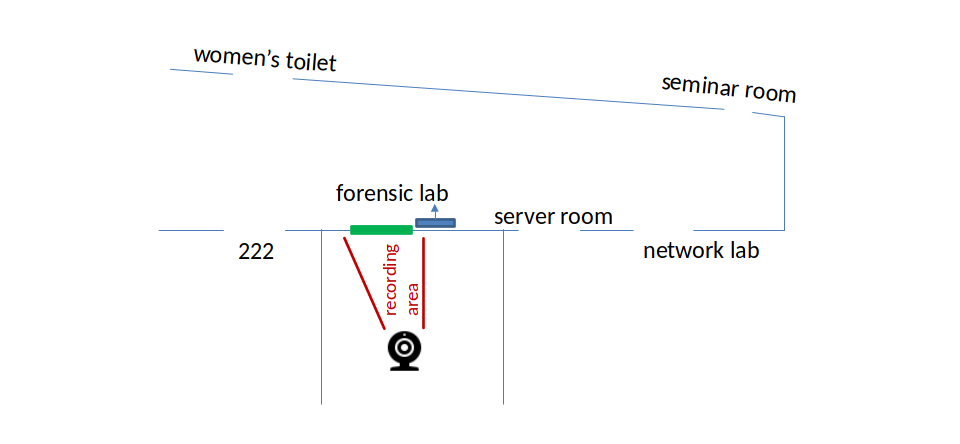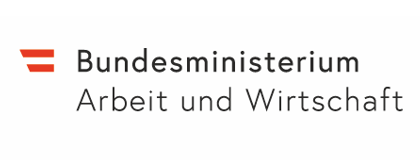Face Recognition on JKU Campus
The goal of this project is to unlock doors without manual interaction if an authorized person intending to open a door is detected. This might be of special interest when both hands happen to be full, or when points of contact should be limited as much as possible, for example when entering an operating room. Therefore, multiple non-moving cameras are placed around the second floor of JKU Science Park 3 (in front of the Institute of Networks and Security). The exact positions are marked in the images below:



These cameras record the corridor, doors, and persons walking along the corridor. Camera sensor devices perform face detection in real-time and initially discover any person in the image. The sensor verifies (again in real-time) if the person is a participant of this study. Additionally, the person’s intent is predicted to only open a door if that is assumed to be desired by the person.
If a non-participating person is detected, any data about that person (i.e. the images and the fact that some unknown person was detected) is immediately discarded and no information about detection of such a person is stored. For participants (i.e. persons who explicitly opted-in to the study), only the fact that a person has been recognized and the person’s intent is stored and used to determine if a person is authorized to unlock the specific door.
The Digidow architecture consists of three components: The sensor and the personal agent agree upon whether the individual (person, who’s digital identity is managed by the personal agent) is in front of a door, without revealing raw images of the sensor. The information that this particular person is standing in front of a particular door and has the intention to enter the room is authenticated by the sensor and provided to the personal agent. The personal agent then uses this authenticated proof to request the verifier to unlock the door given that the person is authorized to access the room.
If a person does not want to participate in this system, that person can still rely on the existing key card based access control mechanism to access rooms. In that case, our experimental setup will not recognize the person and will, therefore, not store any data for these cases.
We requested approval for this experimental setup from the Austrian Data Protection Authority and the request has been approved on 2021-04-28. Our accepted request (Antrag auf Erteilung einer Genehmigung gemäß § 7 Abs 2 Z 3 iVm Abs 3DSG) can be found here. Their decision (Bescheid der Datenschutzbehörde) can be found here.







